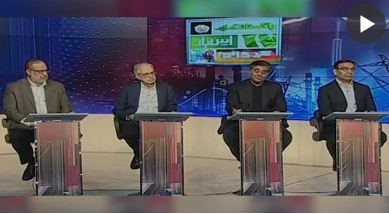ISLAMABAD: As the incumbent government continues efforts to review agreements with the independent power producers (IPPs) amid concerns over rising electricity tariffs, Special Assistant to Prime Minister on Power Muhammad Ali has denounced the power firms for “not allowing regulators to audit their books”.
“No heated audit of IPPs ever carried out in this country,” says Ali who along with sector officials and an economist, addressed the contentious issue of agreements with power producers during Geo News’s talk show “Aakhri Mauqa: Pakistan Kay Liye Kar Dalo”.
Among the participants are Special Assistant to Prime Minister on Power Muhammad Ali, former SAPM on China-Pakistan Economic Corridor (CPEC) Khalid Mansoor, former caretaker minister Gohar Ejaz, former chairman of All Pakistan Textile Mills Association (APTMA), Asif Inam, economist Ammar Habib Khan and CEO of Lucky Electric Power Rohail Muhammad.
In the debate anchored by senior journalist, analyst and anchor Shahzeb Khanzada, the special assistant addressed the public outcry over skyrocketing electricity bills and the ongoing debate surrounding capacity payment charges (CPC) to IPPs.
During the show, Ali said that in 2012, the Securities and Exchange Commission Of Pakistan (SECP) — as a regulator of Pakistan’s corporate sector — wanted to audit the IPPs’ books on excessive profit but the latter resisted and brought stay order from the court.
Similarly, he said, the power firms also did not allow the National Electric Power Regulatory Authority (Nepra) to conduct a “heated audit” of them. “If the matter was kosher so why they [IPPs] did not let that happen,” he said, refuting the notion that everything about the power firms was audited. He added that if IPPs would not allow the regulators to conduct the audit, they become “dysfunctional”.
Speaking of the excessive profit, Ali pointed out that the 2002 regime was a cost plus one, according to him in which, the government was responsible for the full cost of electricity, including the salaries, insurance and spare parts.
“Under that regime, they were getting a 15% internal rate of return (IRR) in dollars,” he said, noting that if the return is more than the agreed-upon one it means “they were making more.”
“These things must be rationalised. It has to be a fair deal for everyone including the government, the consumers and the IPPs,” he added.

















